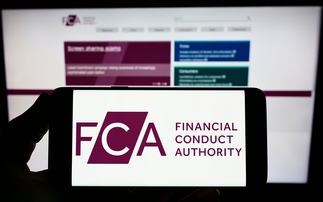Additional reporting requirements, set to be introduced under MiFID II, are likely to scare clients and enforce costly identification responsibilities on asset allocators, the wealth management community has cautioned.
Under the Markets in Financial Instruments Directive II, set for implementation in January 2018, wealth managers will have to alert a client whenever the value of their discretionary portfolios depreciates by 10% on a quarterly basis, and further multiples of 10%.
Gavin Haynes, MD at Whitechurch Securities, said the reporting requirements triggered by such depreciation thresholds will cause disruption during volatile markets, as clients focus on the temporary losses of their investments.
"The only outcome of such a reporting requirement would be to cause investors to panic and may well lead them to make incorrect decisions, such as selling their investments on the back of short-term sentiment," he said. "The way a client's portfolio looks now may be very different to how it looks in six months."
Michael McKee, partner at law firm DLA Piper, said the introduction of the requirement stems from the European Parliament's prioritisation of investor protection.
In the event that non-regulated entities are unaware of the demand for an LEI, who is telling them they need to get identification.
"It is the regulator's view that clients often do not realise what is happening to their money until it is too late, but by its very nature volatility means that any losses could be quickly recouped. By the time clients see the information, it will be too late in the day to take any action.
"Often, the practicalities of implementing the regulator's proposals on investor protection are impossible as a result of liquidity concerns."
Meanwhile, another new requirement will be for each of a wealth manager's clients to have a unique, standardised identification code - known as a legal entity identifier (LEI) - which will allow every trade made on their behalf to be sourced.
According to the London Stock Exchange, the UK's allocator of LEIs, there is an initial allocation cost of £115 for each LEI, alongside an additional annual maintenance charge of £70, with reduced prices for bulk purchases.
Three key compliance challenges for MiFID II Product Governance Rules
Paul Chavasse (pictured), head of investment management at Rathbone Brothers, said LEIs could generate large cost burdens for wealth managers or their clients, depending whether the charge is passed on.
"As well as applying for an LEI, clients and advisers will have to submit supporting paperwork and pay an ongoing fee," he said.
"This will probably include ETFs, investment trusts and equities, so then platforms may have to report this too. It could be very costly if you have 10,000 entity clients and it will definitely involve a lot of paperwork."
Ian Cornwall, director of regulation at the Wealth Management Association, said the trade body believes LEIs "are not the best approach to take" to ensure client identification.
"I think wealth managers are still trying to work out what additional information they need from clients to meet requirements," he said. "In the event that non-regulated entities are unaware of the demand for an LEI, who is telling them they need to get identification?"
As well as applying for an LEI, clients and advisers will have to submit supporting paperwork and pay an ongoing fee.
Similarly, James Nicholls, partner, risk and compliance at Baringa Partners, said it is currently unclear whether wealth managers will pass the cost of LEIs down to customers or absorb it into their own cost base.
Euro authorities must get a grip on MiFID II
"To date, wealth managers have informally arranged LEIs where needed for customers. However, they have not been needed on a widespread basis, as it looks like they will now," he said.
"The wealth management industry needs to come to some conclusion on what to do with the cost, and I expect there will be some competition between LEI providers in reducing the cost as volumes increase."
















